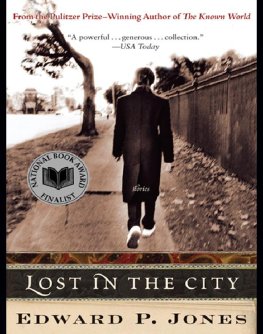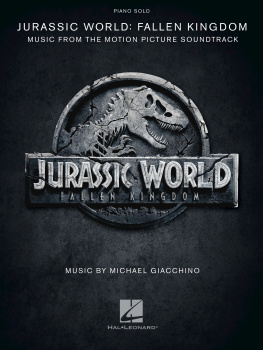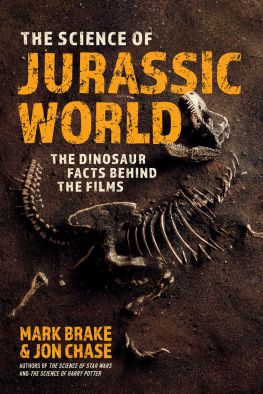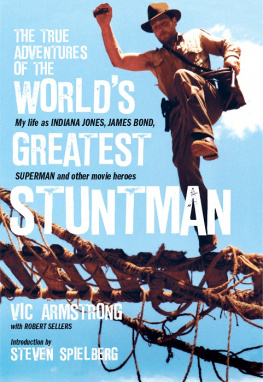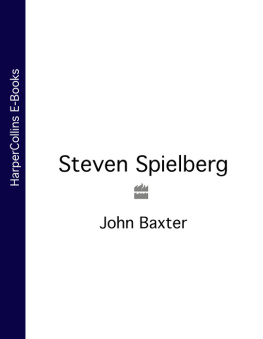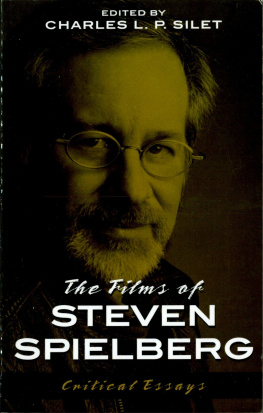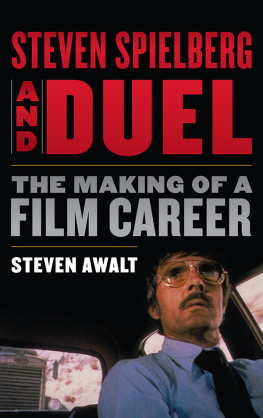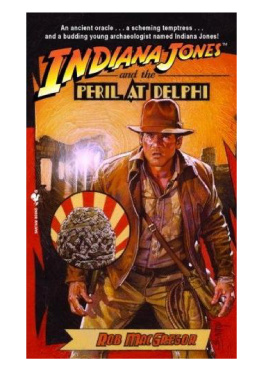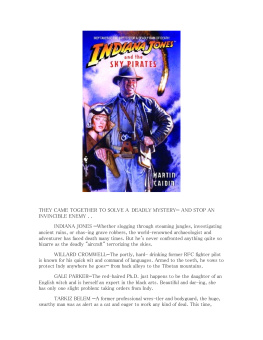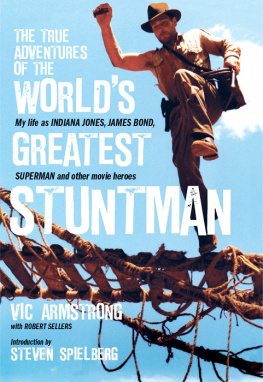STEVEN SPIELBERG

Steven Spielberg
A Life in Films
MOLLY HASKELL

New Haven and London
Frontispiece: Spielberg and Henry Thomas discuss a scene in E.T. the Extraterrestrial. Universal Pictures/Photofest.
Copyright 2017 by Molly Haskell.
All rights reserved.
This book may not be reproduced, in whole or in part, including illustrations, in any form (beyond that copying permitted by Sections 107 and 108 of the U.S. Copyright Law and except by reviewers for the public press), without written permission from the publishers.
Yale University Press books may be purchased in quantity for educational, business, or promotional use. For information, please e-mail sales.press@yale.edu (U.S. office) or sales@yaleup.co.uk (U.K. office).
Set in Janson Oldstyle type by Tseng Information Systems, Inc. Printed in the United States of America.
Library of Congress Control Number: 2016938134 iSbn 978-0-300-18693-2 (hardcover : alk. paper)
A catalogue record for this book is available from the British Library.
This paper meets the requirements of ANSI/NISO Z39.48-1992 (Permanence of Paper).
10987654321
CONTENTS
PREFACE
IN EARLY 1993, Steven Spielberg is in Krakw filming Schindlers List. By day, he shoots a scene in a work camp: children are being herded onto trucks for deportation, singing as if on a jolly field trip. A few run away to crouch in cellars and boxes, and when there are no more hiding places, one jumps into a latrine. By night, he is talking via satellite with the crew at Industrial Light and Magic in northern California, discussing the final editing of Jurassic Park, listening to John Williamss score, maybe fiddling with the elbow of a velociraptor. The juxtapositionas if dread and anxiety could thus be halved, one film allaying the stress of the otherseems almost inhuman as well as superhuman.
In December 2016, Spielberg turned seventy. In his eighth decade on earth, he is still making movies as fast we can see them. What keeps him going? The answer, or rather the mystery, begins with the outsize fears of a little boy who began biting his nails while still in knee-pants. A little boy who was spooked by everything, by the static on the radio, by Disney films, by the tree outside his New Jersey window that turned sinister in a storm, its branches weaving and waving like some otherworldly monster.
What makes him unusual is not just the size of the fears but his manner of hanging onto them. Rather than bury those shaming moments of childhood vulnerability, as most of us do, he nourished their memory, translated them into bold cinematic images, and projected them onto a terrified audience as he had once relieved his own anxiety by terrorizing his younger sisters. So powerful was the urgeand so successful an exorcismthat as a director he would aim for nothing less than whole theaters full of spectators biting their nails, or blissed out with shock and awe at close encounters with the paranormal.
In the weeks leading up to the 2014 Academy Awards, one of the factoids that newscasters dished out to whet viewer appetites was a statistic on who Oscar winners thanked most. The top two names, according to NBCs Lester Holt, were Steven Spielberg and God, with the latter receiving only nineteen mentions to the formers forty-two. What did this mean? That he has touched more lives and boosted more careers than the Almighty, let alone L. B. Mayer, David Selznick, Irving Thalberg, Lew Wasserman, and assorted agents, parents, and spouses? Or perhaps that the popular populist has simply become a lodestar to would-be filmmakers, like the celestial light in Close Encounters of the Third Kind, or the extraterrestrial pal E.T. Or even that his philanthropic work, like the establishment of the Shoah Foundation, with its archived testimonies from Holocaust survivors, has granted him a transcendent place among mankinds beneficiaries.
The output is staggering; his fingerprints are everywhere, as producer as well as director, in video games and television as well as feature films. In his forty-two years of making moviesfifty-two if you count his childhood effortsthe wunderkind has given more pleasure to more people than any other filmmaker in history. If he hasnt touched every heart and mind with every picture, its a guarantee that he has touched even the harshest critic with one, or two, or three. For some, the early movies centering on childhoodClose Encounters and E.T.have never been bettered. For others Jaws, Raiders of the Lost Ark, and Jurassic Park are the greatest adventure movies ever made, and even their weaker spin-offs and sequels have a way of earning, with time, the revisionist honor of underappreciated gems. For still others, like myself, the later films with their dark edgesEmpire of the Sun, Schindlers List, A.I., Minority Report, and the melancholy-tinged Catch Me If You Cangive a greater and very different kind of pleasure.
Other action movies and franchises may equal or outperform his at the box office, but no filmmaker has combined profits and prestige the way he has, with multiple Oscar nominations and wins, while at the same time having directedwith figures adjusted for inflationtwo of the top ten grossing films of all time, E. T. the Extra-Terrestrial and Jaws. The box office flops are few, and generally the artistic failures and underperformers go on to recoup their investment in global release or on DVD. Financial success is also part of the story, off-putting to many and a critical liability, but something that has enabled him to follow his conscience into less crowd-pleasing movies and accomplish a great deal as a philanthropist.
When Yale University Press came to me with the idea of writing a short biography of Spielberg for its Jewish Lives series, I hesitated, for obvious and less obvious reasons. I didnt worry about not being Jewishlet others do that. I believe strongly that there should be no bars of race, ethnicity, or gender to writing, and I think its particularly important in the case of Spielberg, for one of his greatest traits has always been a kind of natural ecumenism, a generosity of spirit. He grew up in mostly gentile suburbs in New Jersey and Arizona and belatedly found his own path to Judaism, coming to terms with the faith hed denied and the insults hed suffered, but remarkably free of rancor or a retributive agenda.
More to the point, I had never been an ardent fan. We both had our blind spots. The problem was, Spielbergs blind spots were my see spots, and vice versa. He readily acknowledged that he had no feeling for European films. He always wanted his films to arrive someplace. But brooding ambiguities, unresolved longings, things left unsaid, and the erotic transactions of men and women are the very things that drew me to movies in the first place. His great subjectschildren, adolescentsand genresscience fiction, fantasy, horror, action-adventurewere stay-away zones for me. Even his forays into history were inspirational rather than ironic or fatalistic, the work of a man who favored moral clarity, was uncomfortable with shades of gray.
Nor was Inor had I ever beenthe adolescent boy whose fears and anxieties were the gnawing, liberating center of his films, who would respond passionately to his oeuvre, resisting, with him, the ordeal of growing up and moving on. I had been born a different gender and six significant years earlier, a war baby as opposed to the boomers of which he (born in 1946) was an entry-level member. Mine was an in-between sensibility: although I would rebel and make a break for broader pastures, adults were still figures of fascination and respect.
Next page

